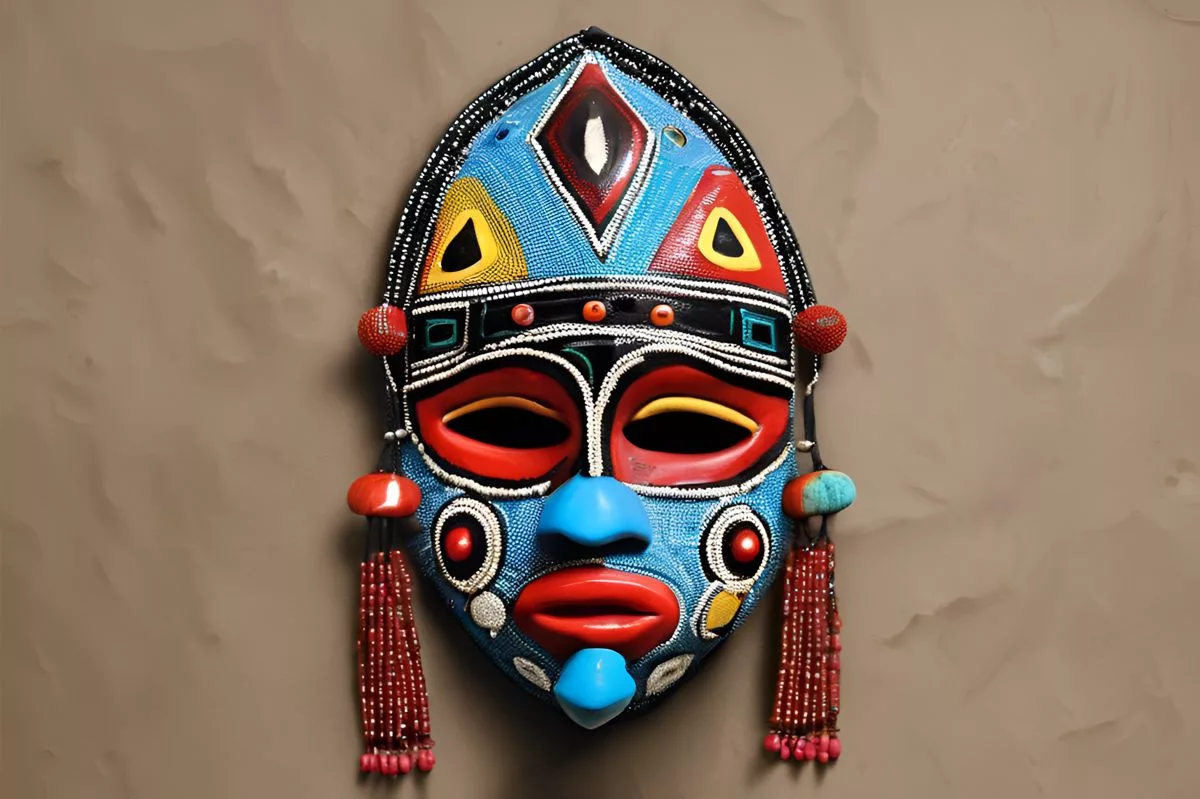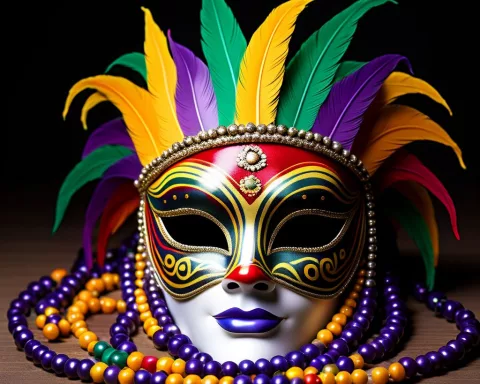The controversy centers around the similarity between Balmain’s face jewels in their Fall/Winter Men’s collection and Tongoro’s ‘Cairo’ face piece, bringing up issues of cultural appropriation and the need for recognition of non-western creativity. The controversy highlights the larger problem of cultural appropriation and the lack of recognition for creativity from Africa and other non-western regions in the fashion industry. This conversation prompts the need for a more inclusive, respectful, and equitable global fashion industry.
Fashion Week Conflict: Accusations of Plagiarism
Tongoro, a Senegalese luxury fashion brand, accused Balmain of plagiarism during Paris Fashion Week, sparking a conversation about cultural appropriation and the need for recognition of creativity from non-western regions. The controversy centered around the similarity of Balmain’s face jewels in its 2024 Fall/Winter Men’s collection to Tongoro’s ‘Cairo’ face piece. This controversy highlights the need for a more equitable recognition of global creativity and a respectful engagement with cultural inspirations in the fashion industry.
Fashion Week Conflict: Accusations of Plagiarism
The latest Paris Fashion Week didn’t go without its share of controversies. The bone of contention was a plagiarism accusation from Tongoro, a Senegalese luxury fashion brand, against the iconic French designer label, Balmain. The accusation was initiated by Sarah Diouf, Tongoro’s founder, who took her concerns to social media. Diouf was deeply disturbed by the resemblance of her brand’s unique face jewellery designs in the work of Olivier Rousteing, the creative director at Balmain. Primarily, the controversy revolved around the face jewels featured in Balmain’s 2024 Fall/Winter Men’s collection, which were uncannily similar to Tongoro’s ‘Cairo’ face piece.
Diouf’s social media post was much more than an assertion of alleged imitation. It shone a spotlight on a pervasive problem in the world of fashion — well-established brands often borrow creative ideas from lesser-known, frequently non-western brands without due credit. “The visible similarity of the piece presented by @olivier_rousteing for his Balmain FW24 Men’s collection to ours, is a painful event,” Diouf expressed. Her statement implied a broader problem — the imbalance of power in the fashion industry, where the line between ‘inspiration’ and outright theft is often blurred.
The Cultural Significance of Tongoro’s Creations
The heart of the controversy lies in the deep cultural significance and inspiration behind Tongoro’s unique designs. Diouf has always acknowledged the aesthetic influences of African tribes, particularly the nomadic Woodabe tribe, on her work. The ‘Cairo’ face piece, a part of the ‘Tongoro Tribe’ collection launched in May 2019, stands as a testament to this inspiration. The piece isn’t just an item of jewellery; it is a celebration of traditional tribal makeup and a tribute to Africa’s rich cultural diversity.
This face piece quickly rose to fame, adorning globally recognised celebrities like Naomi Campbell and Alicia Keys. Its crowning achievement came when it was featured by Zerina Akers in the music video for ‘Spirit,’ part of Disney’s Lion King, where Beyoncé wore it. The video, brimming with African cultural references, introduced the piece to a global audience. It served to entrench the piece as a prominent element of Tongoro’s line, creating a lasting cultural moment.
A Broader Issue: Cultural Appropriation and Recognition
However, the issue extends beyond the alleged imitation of a single piece of jewellery. It encapsulates the larger problem of cultural appropriation and the lack of recognition for creativity from Africa and other non-western regions. This controversy prompts critical questions about the power dynamics within the fashion industry and the rights of smaller brands to safeguard their designs.
Balmain’s silence in the face of these allegations has only added fuel to the controversy. The fashion world’s eyes are on this unfolding drama, underscoring the need for a more equitable recognition of global creativity and a respectful engagement with cultural inspirations.
A More Inclusive Fashion Industry: The Need for Dialogue and Ethics
While this controversy has undoubtedly cast a shadow over the Paris Fashion Week, we can find solace in the fact that voices like Sarah Diouf’s are gaining attention. Her stand has brought an alleged act of plagiarism to light and triggered a much-needed conversation about creativity’s ethics and respecting the origins of artistic inspiration. These discussions are vital for shaping a more inclusive, respectful, and equitable global fashion industry.
In conclusion, the recent controversy at the Paris Fashion Week is more than a disagreement between two fashion houses. It is a wake-up call to the fashion industry, highlighting the need for cultural sensitivity, ethical creativity, and respectful acknowledgement of inspiration in a global landscape. The fashion world must heed this call to ensure a more inclusive and equitable future for all designers, irrespective of their geographical or cultural origin.
What was the controversy surrounding Balmain and Tongoro during Paris Fashion Week?
The controversy centered around the similarity between Balmain’s face jewels in their Fall/Winter Men’s collection and Tongoro’s ‘Cairo’ face piece, bringing up issues of cultural appropriation and the need for recognition of non-western creativity.
What was the accusation made by Tongoro against Balmain?
Tongoro accused Balmain of plagiarism during Paris Fashion Week, sparking a conversation about cultural appropriation and the need for recognition of creativity from non-western regions. The controversy centered around the similarity of Balmain’s face jewels in its 2024 Fall/Winter Men’s collection to Tongoro’s ‘Cairo’ face piece.
What is the cultural significance of Tongoro’s creations?
The heart of the controversy lies in the deep cultural significance and inspiration behind Tongoro’s unique designs. The ‘Cairo’ face piece, a part of the ‘Tongoro Tribe’ collection launched in May 2019, stands as a testament to this inspiration. The piece isn’t just an item of jewellery; it is a celebration of traditional tribal makeup and a tribute to Africa’s rich cultural diversity.
What does this controversy highlight in the fashion industry?
This controversy highlights the larger problem of cultural appropriation and the lack of recognition for creativity from Africa and other non-western regions in the fashion industry. This conversation prompts the need for a more inclusive, respectful, and equitable global fashion industry.
What is the need for a more inclusive fashion industry?
The need for a more inclusive fashion industry is highlighted by this controversy. It prompts critical questions about the power dynamics within the fashion industry and the rights of smaller brands to safeguard their designs. The fashion world must heed this call to ensure a more inclusive and equitable future for all designers, irrespective of their geographical or cultural origin.
What is the importance of the conversation sparked by this controversy?
The conversation sparked by this controversy is vital for shaping a more inclusive, respectful, and equitable global fashion industry. It highlights the need for cultural sensitivity, ethical creativity, and respectful acknowledgement of inspiration in a global landscape.












